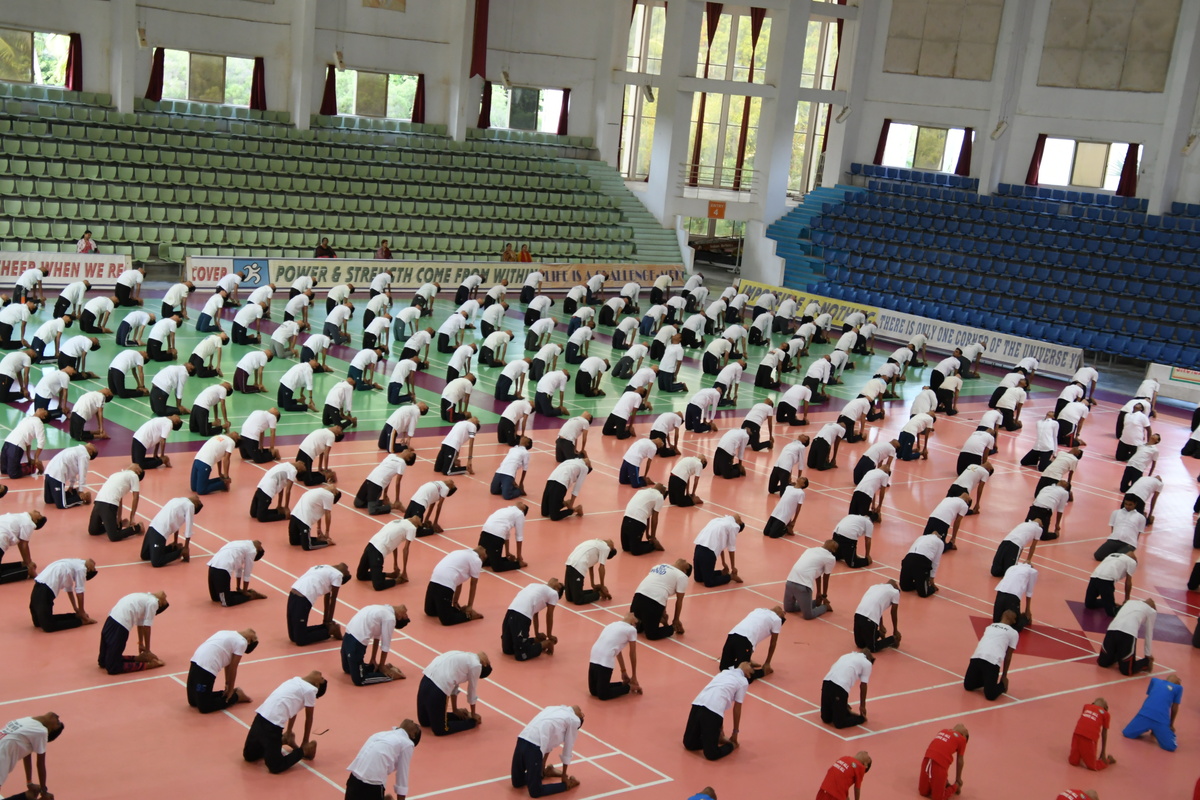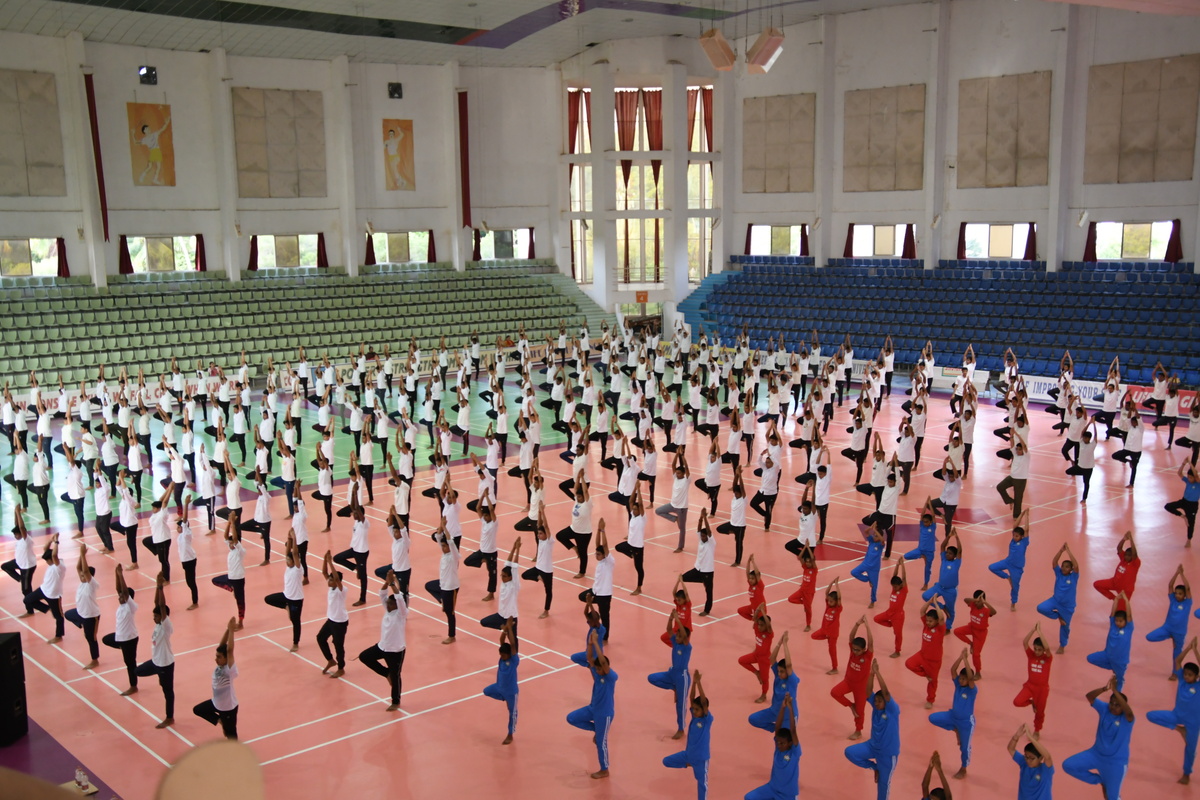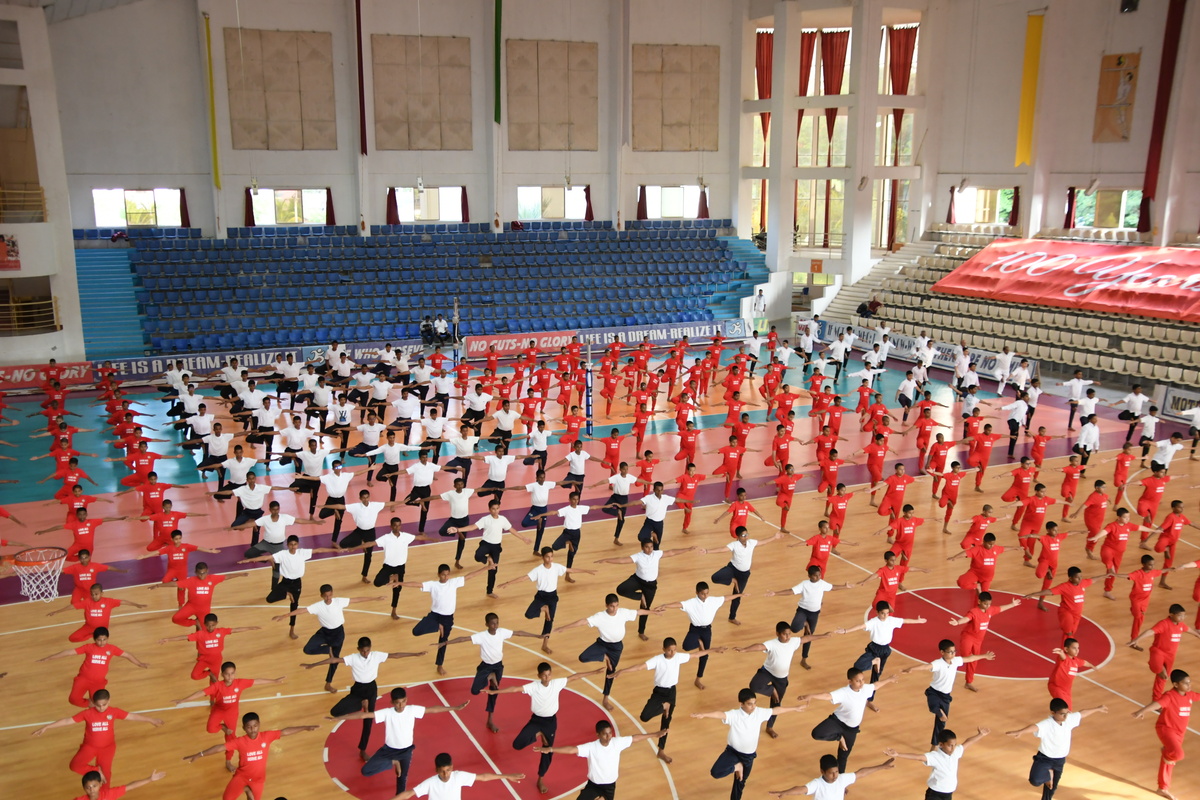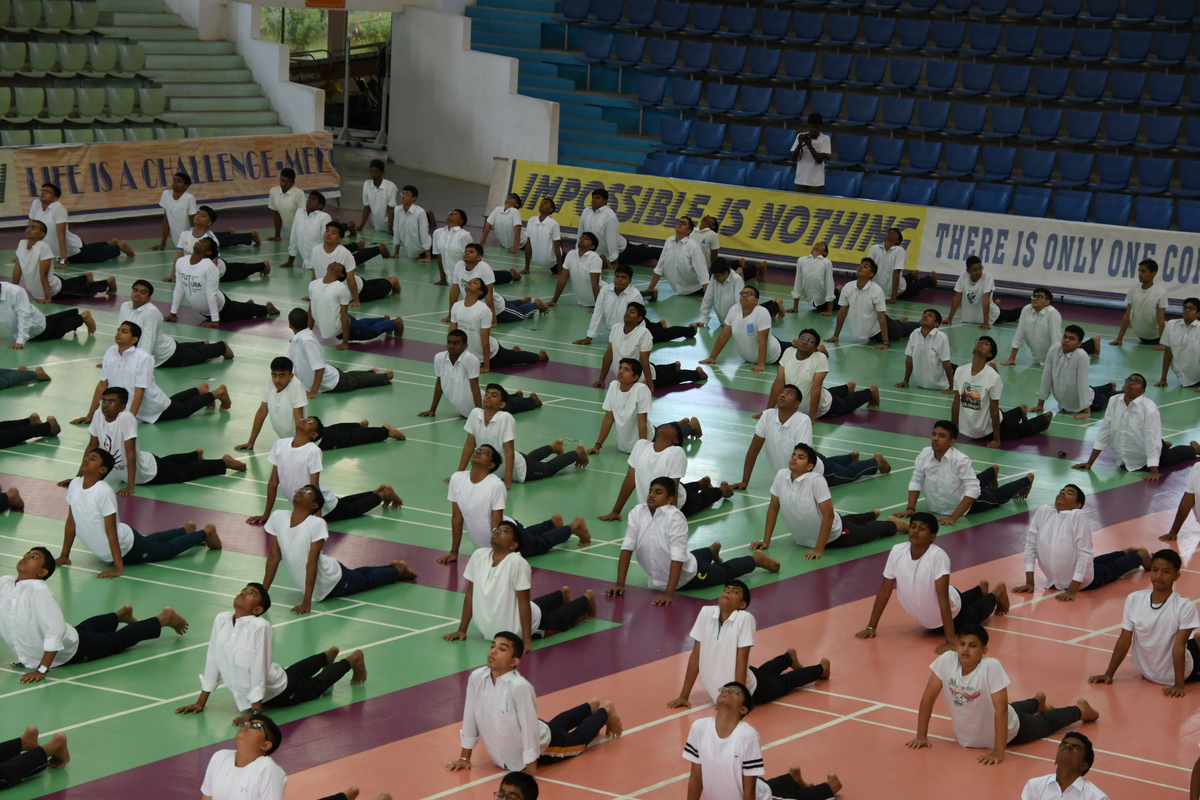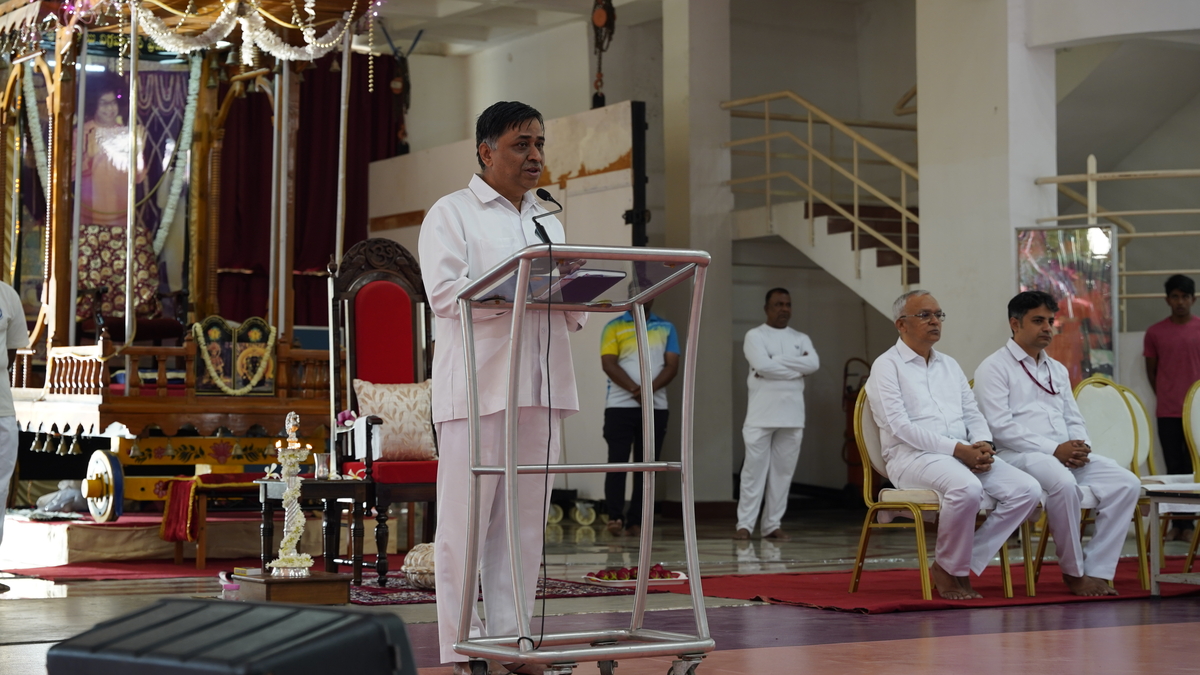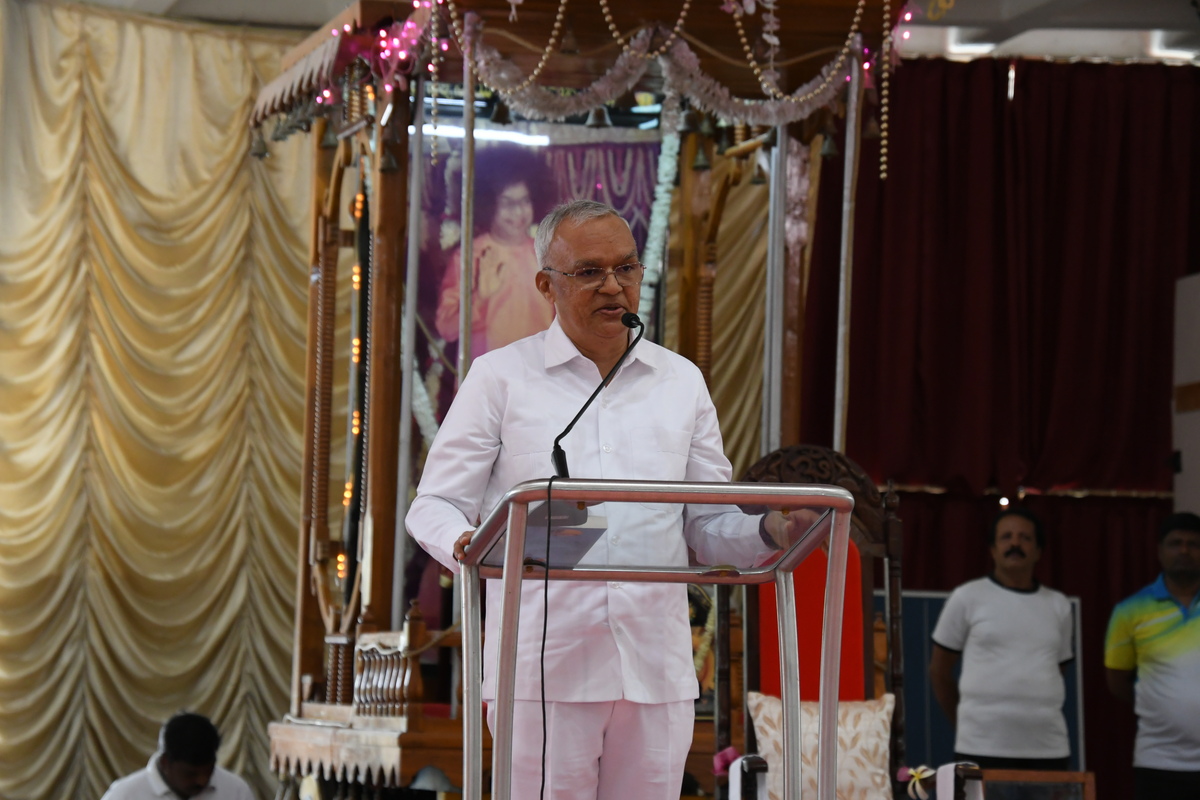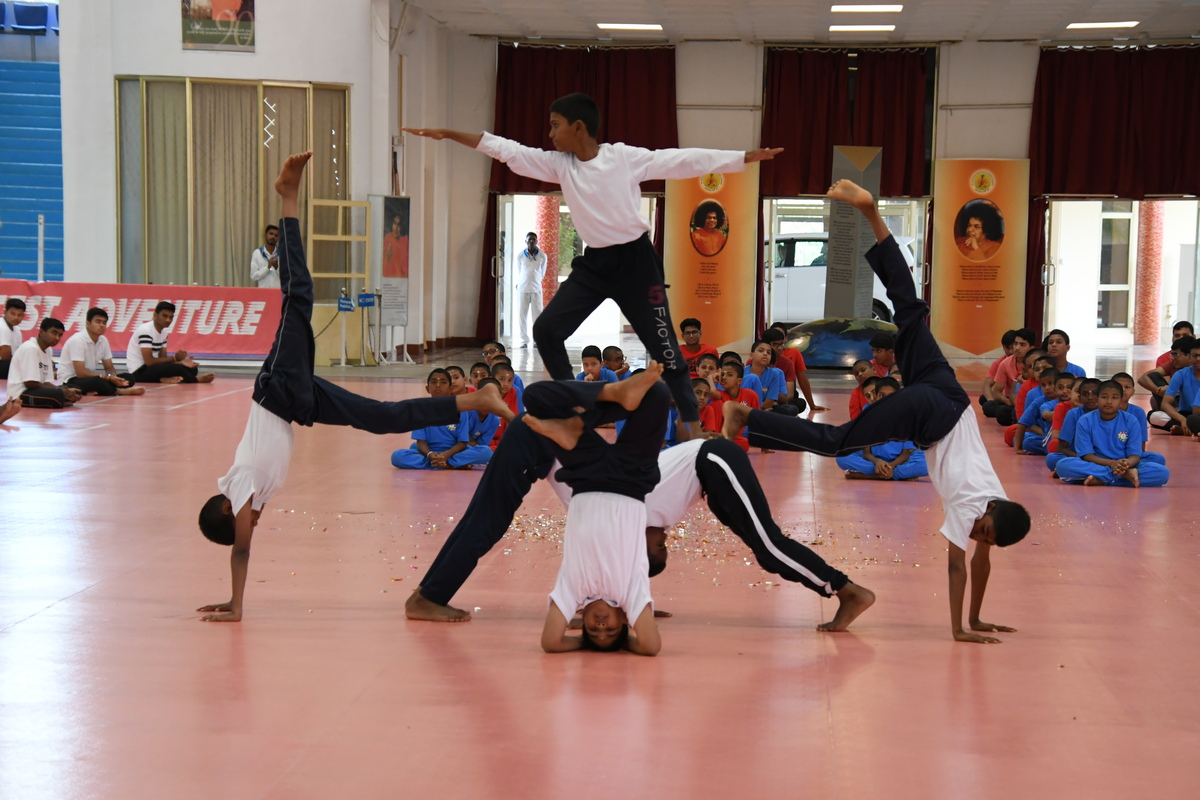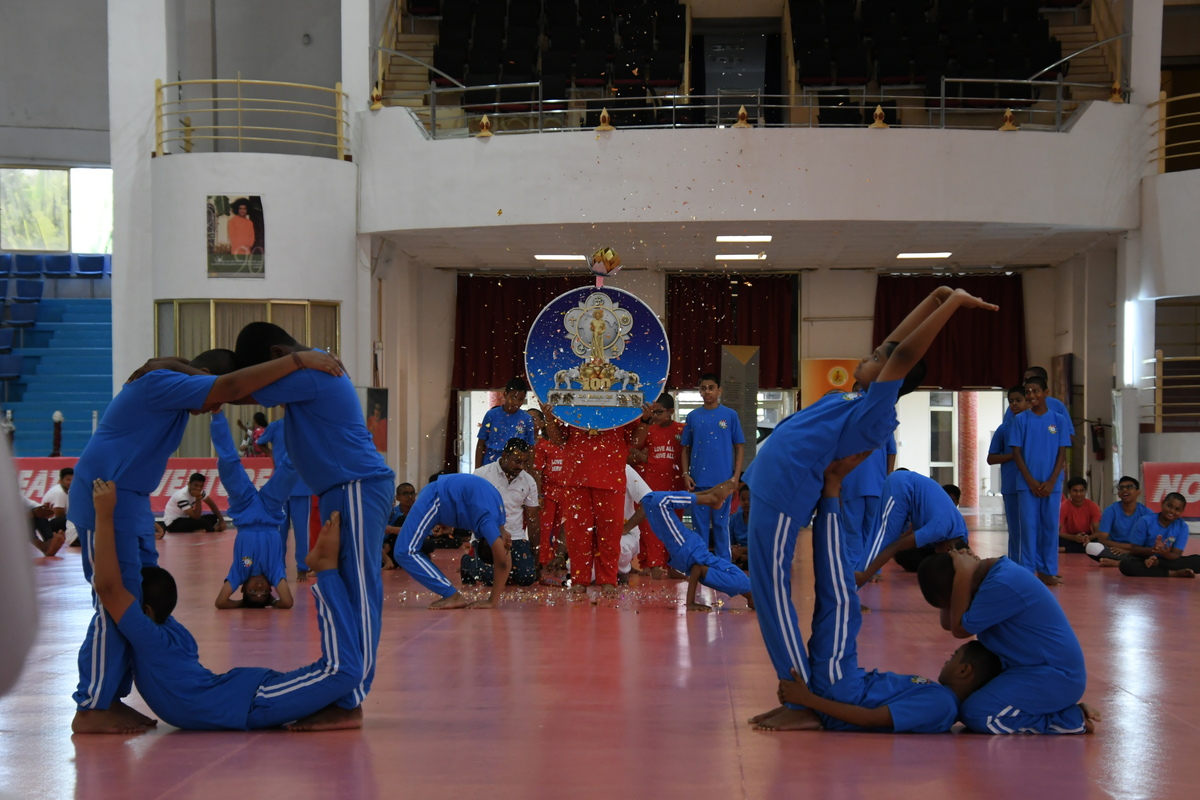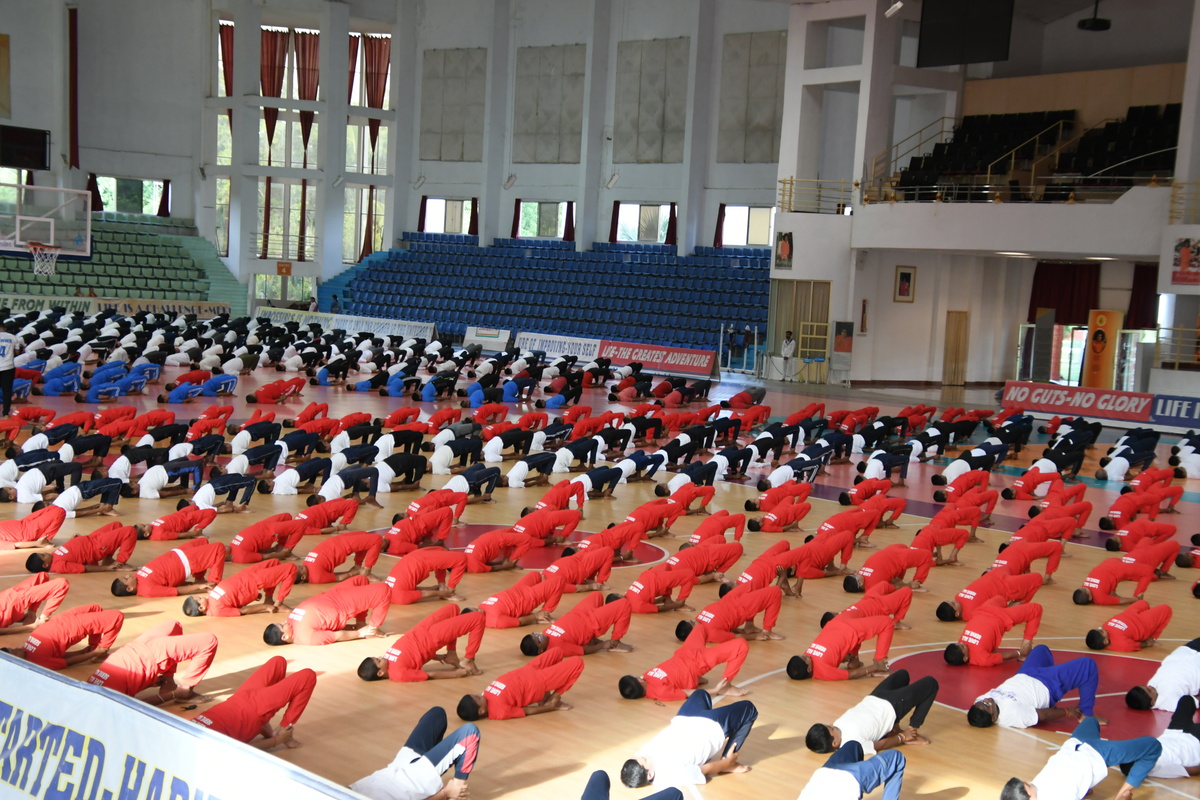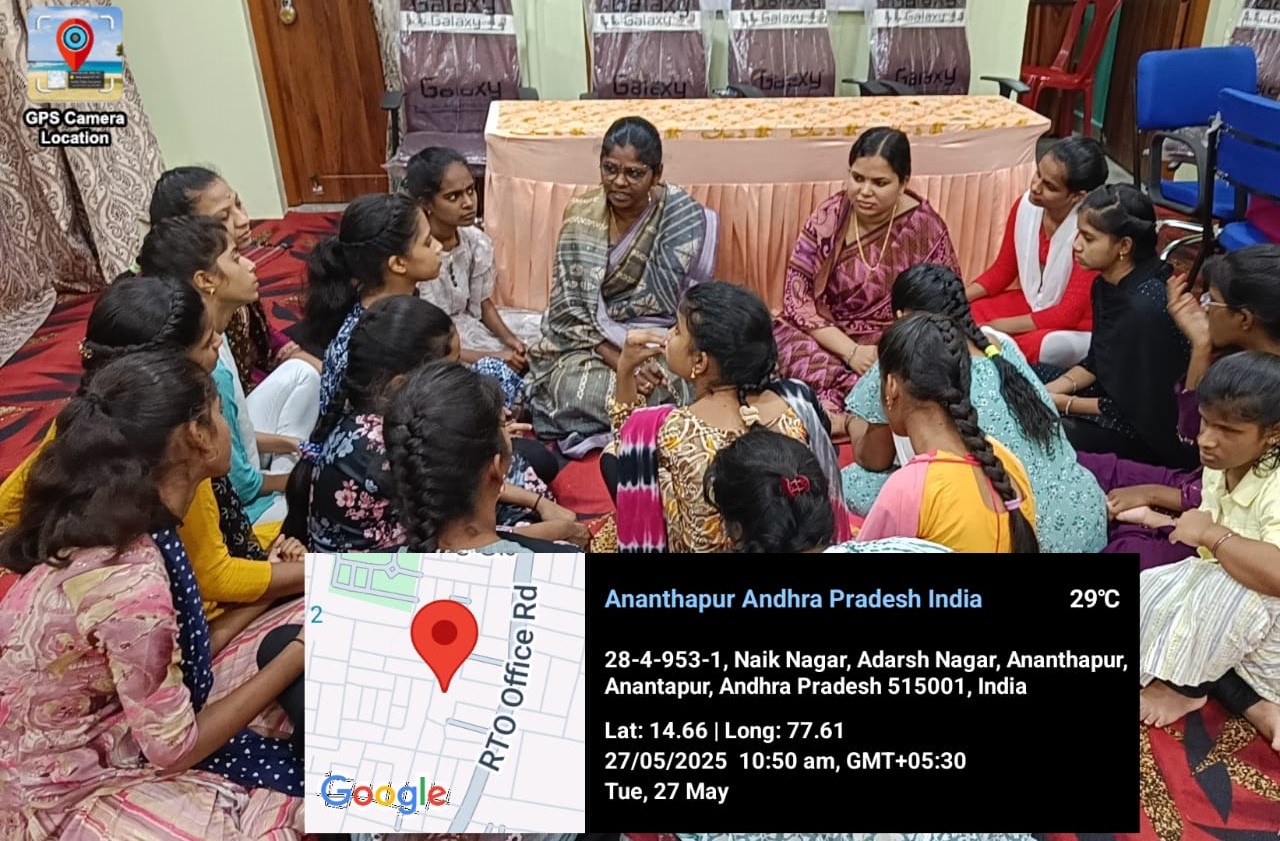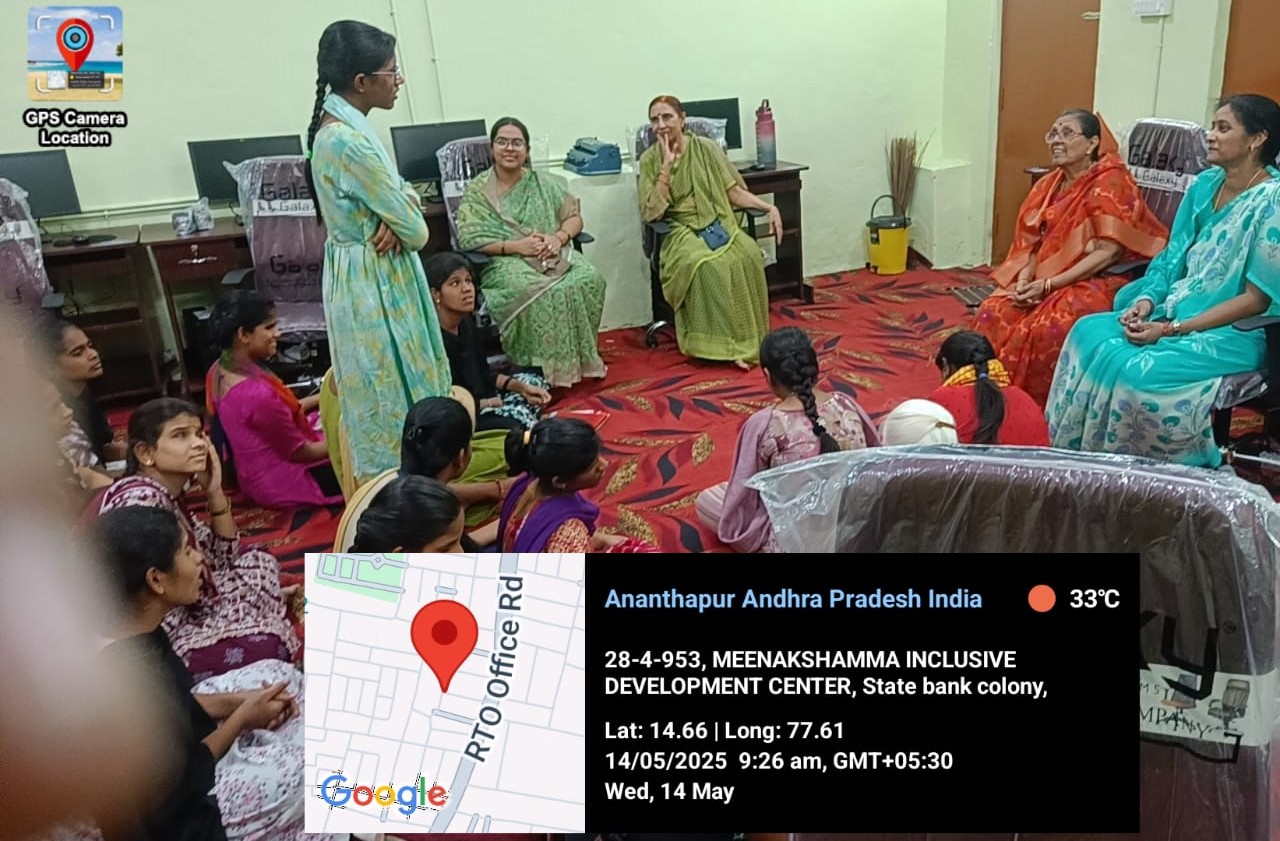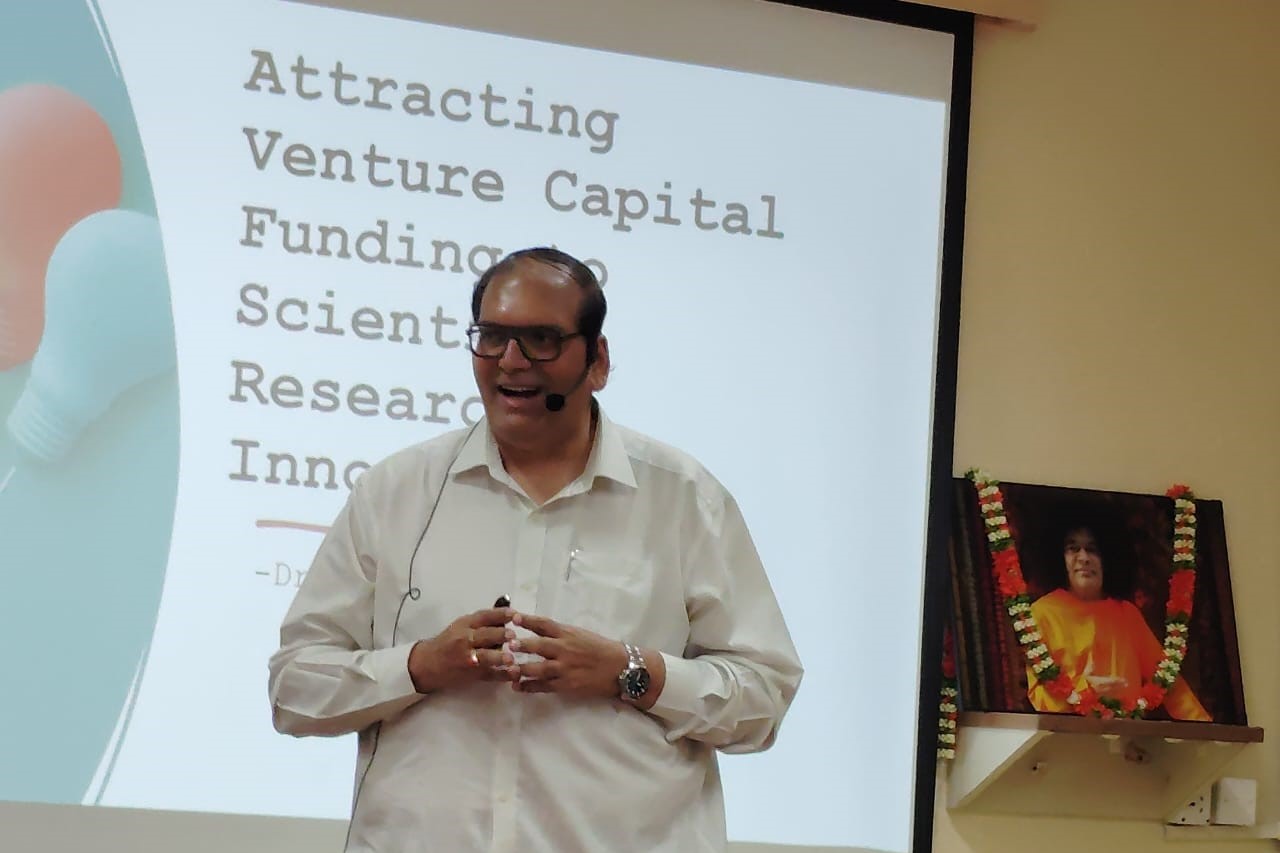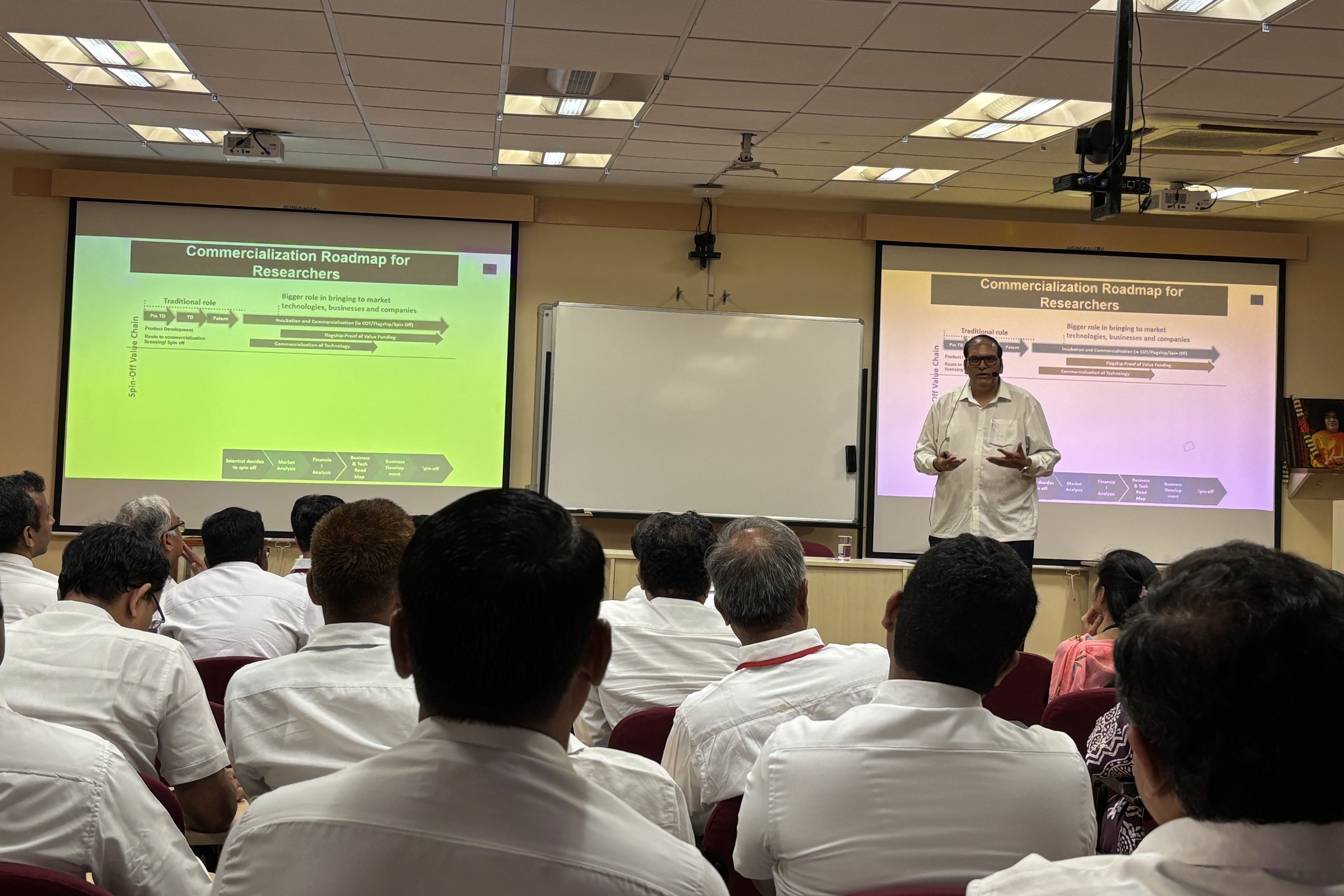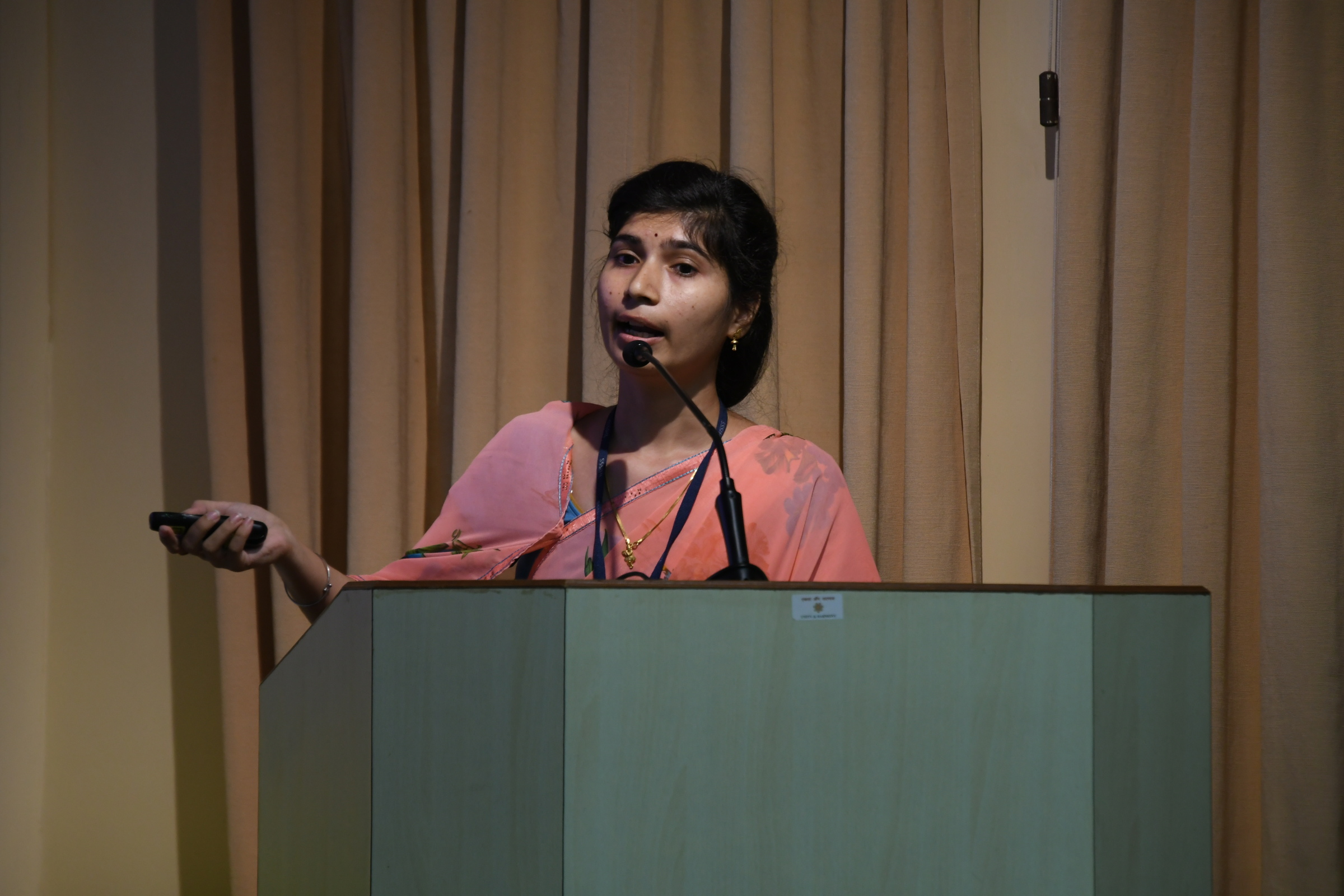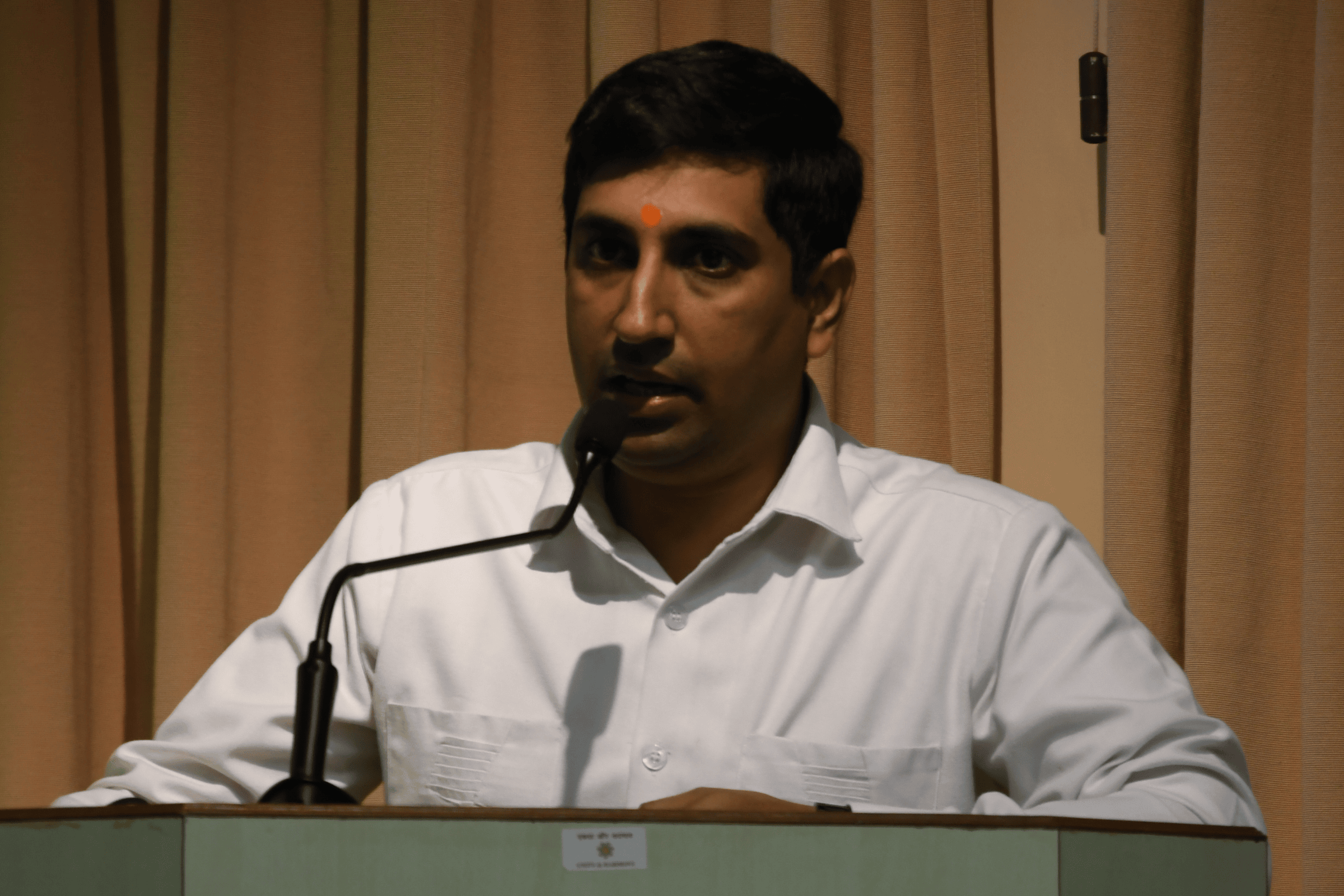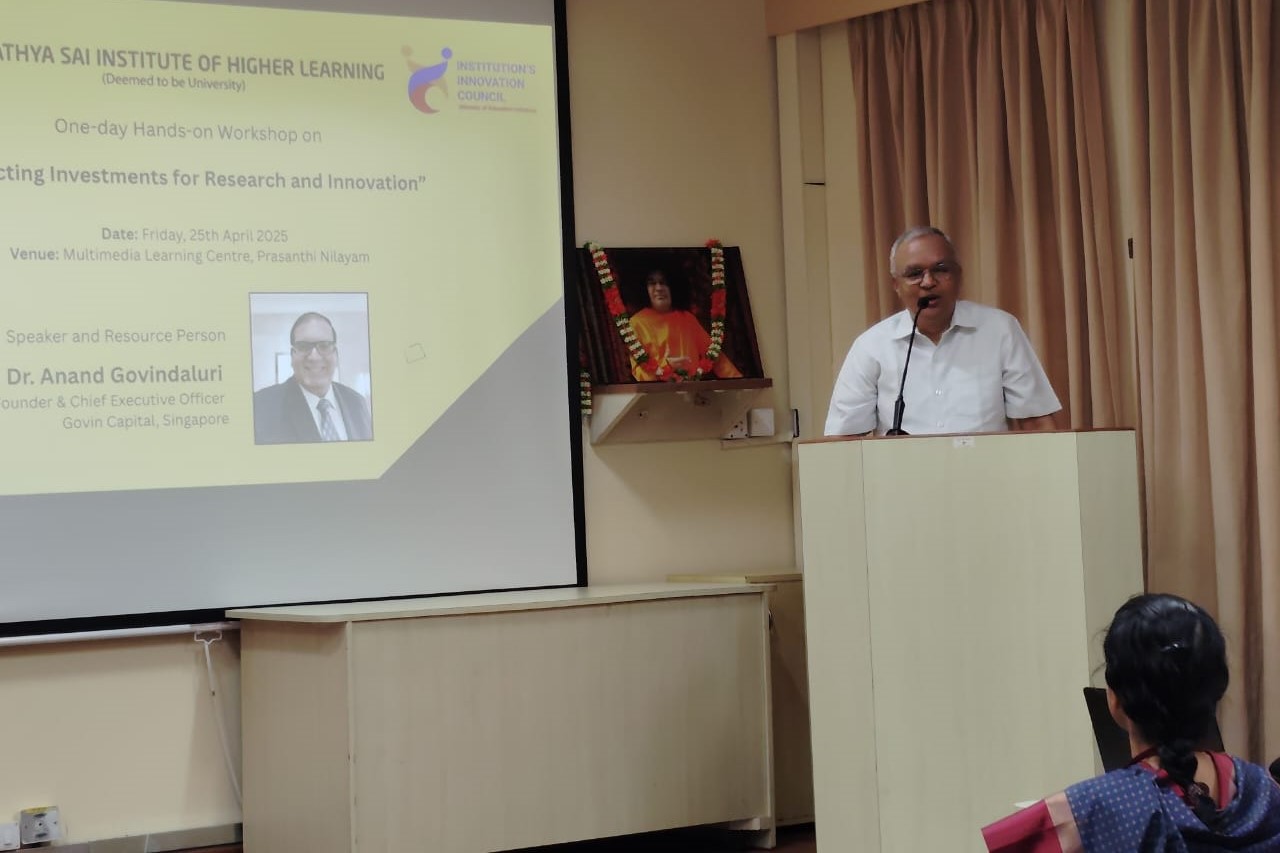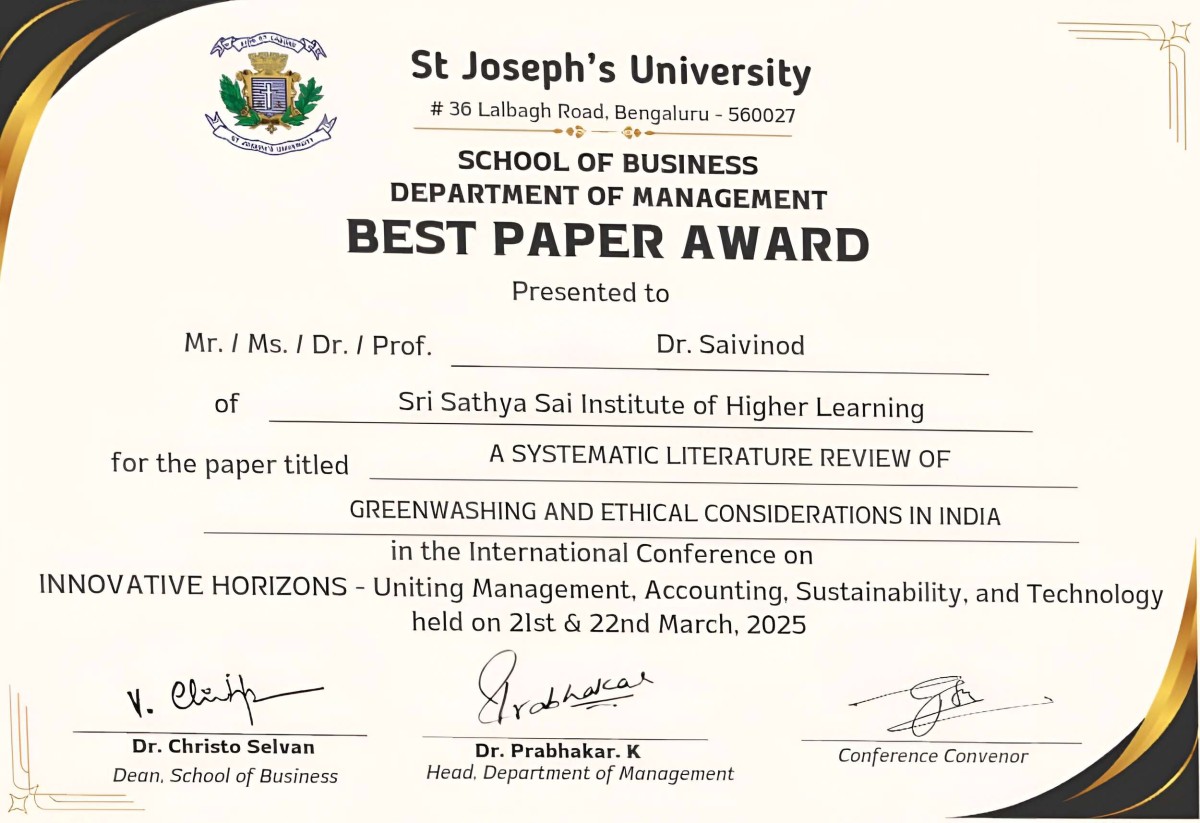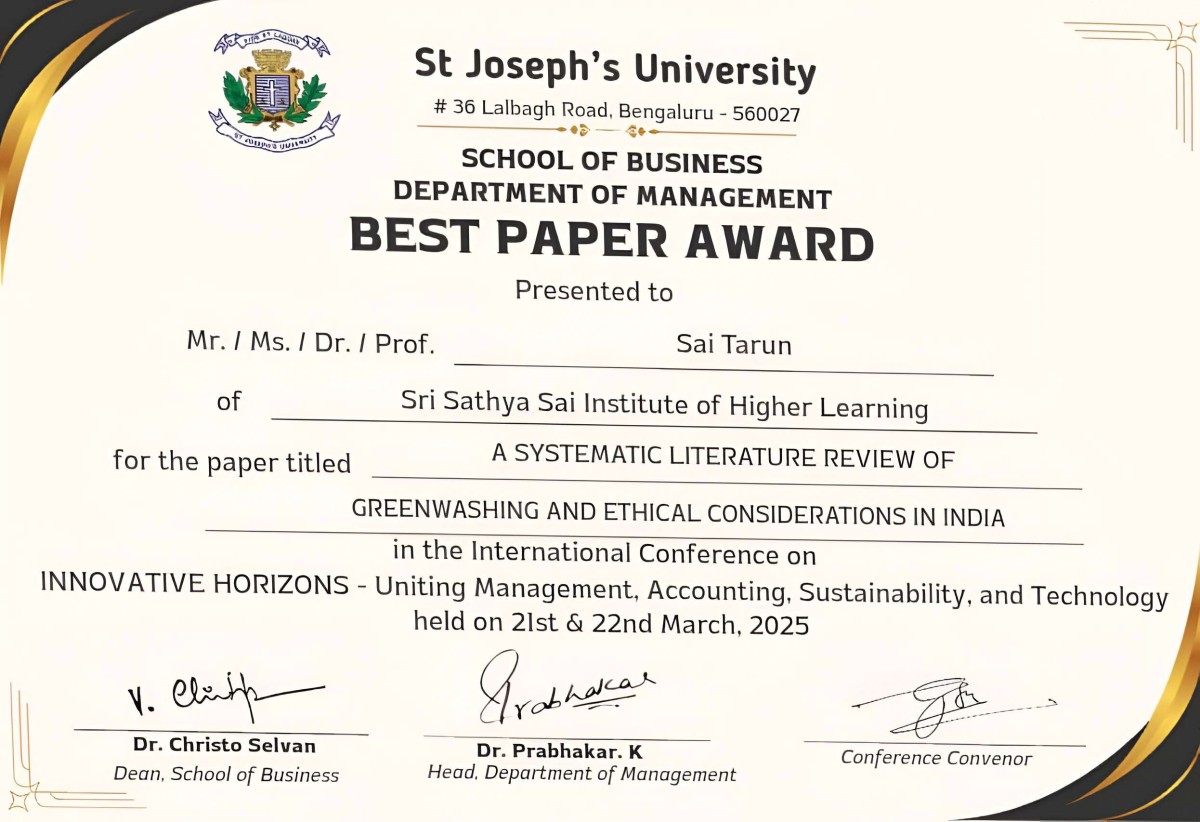A workshop on “Generative AI in Education and Administration – Concepts and Practice” was conducted on 21st June 2025 at the Prasanthi Nilayam Campus. Organised by the IQAC team of Sri Sathya Sai Institute of Higher Learning (SSSIHL), the initiative aimed to introduce the transformative potential of Generative AI (Gen AI) to non-teaching staff from various campuses of SSSIHL, hospitals, and allied trust organisations. Around 100 participants enthusiastically took part in this full-day programme.
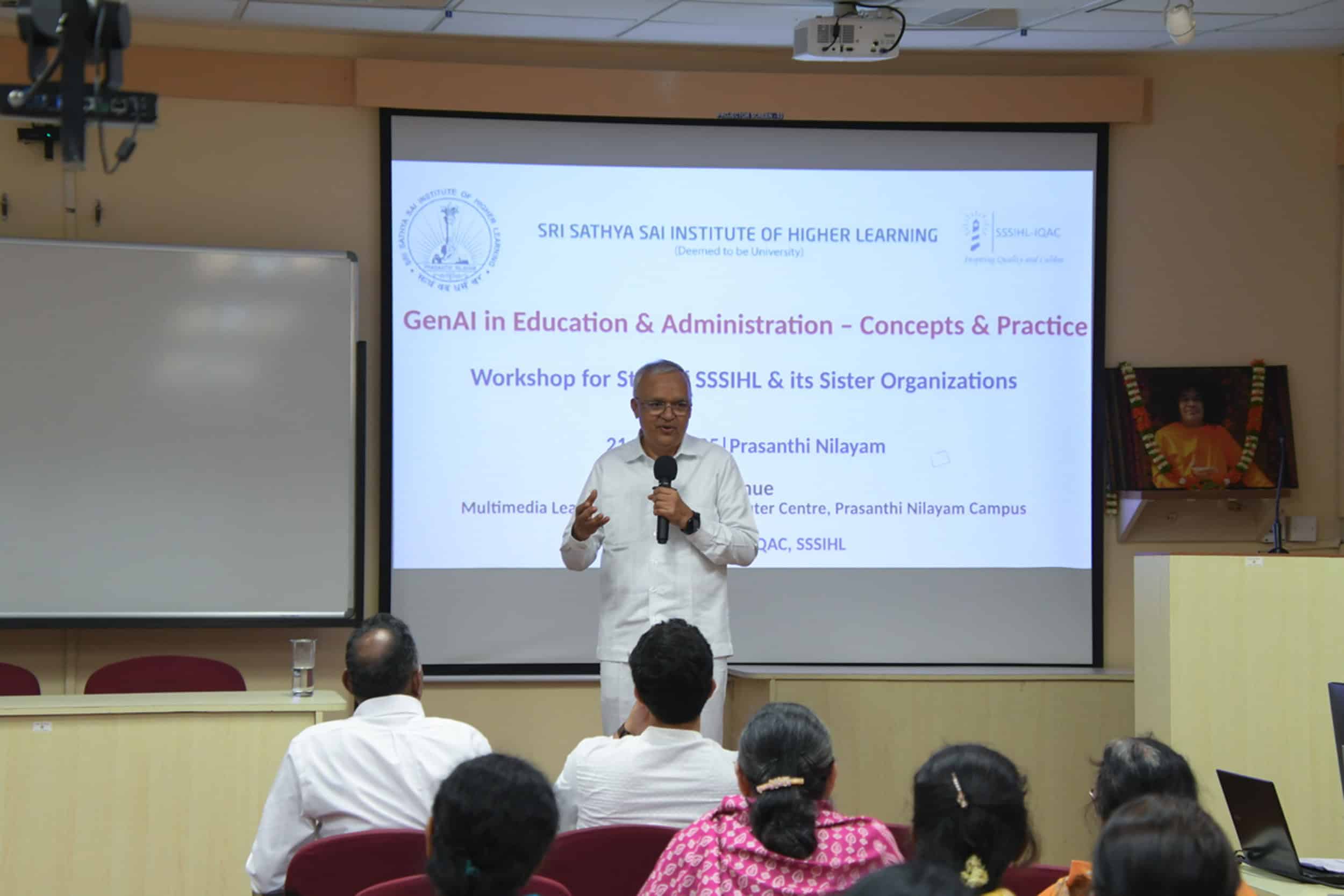
Gen AI in Education and Administration
Opening Session
The workshop commenced with a soulful Vedam chanting by members from different campuses, setting a spiritual ambience.
Dr. S Balasubramanian, Coordinator, IQAC, delivered the Welcome Address, highlighting the relevance of AI tools in today’s educational and administrative landscapes.
Sri P Balaganesan, Deputy Manager (Finance), SSSIHL, introduced the guest speakers and outlined the objectives of the workshop.
Morning Session: Exploring the Concepts and Ethics of Gen AI
The morning session was led by Sri Rajesh Dhuddu, Partner – Emerging Technologies, PricewaterhouseCoopers (PwC), SSSIHL Alumnus and Gold Medallist, who inspired the audience to reflect on the deeper dimensions of technology. Sri Dhuddu delivered a comprehensive introduction to Generative AI, its capabilities, and its implications in modern professional environments.
Key Concepts Covered:
- The fundamental difference between Artificial Intelligence and Generative AI
- Core features of Gen AI and how these tools function
- Overview of popular Gen AI platforms including ChatGPT, Gemini, Notion, and Jasper
- Understanding the data sources and mechanisms that power these tools
Responsible Use and Ethical Guidelines:
- Exercise discretion and critical thinking when interpreting AI-generated content
- Refrain from sharing confidential or sensitive information
- Use clear and effective prompts for optimal outputs
- Uphold ethical standards and institutional values while using AI tools
Practical Applications in Daily Workflows:
- Idea generation and brainstorming support
- Creative writing and user interaction
- Producing contextual and relevant responses
- Image creation for presentations and reports
- Supporting validation and refinement of ideas
The session concluded with a highly engaging Q&A and open discussion. Participants raised thoughtful queries on how Gen AI could be meaningfully applied in their specific domains such as:
- Healthcare and medical documentation
- Accounting and financial processes
- Ethical, administrative, and social implications of AI usage
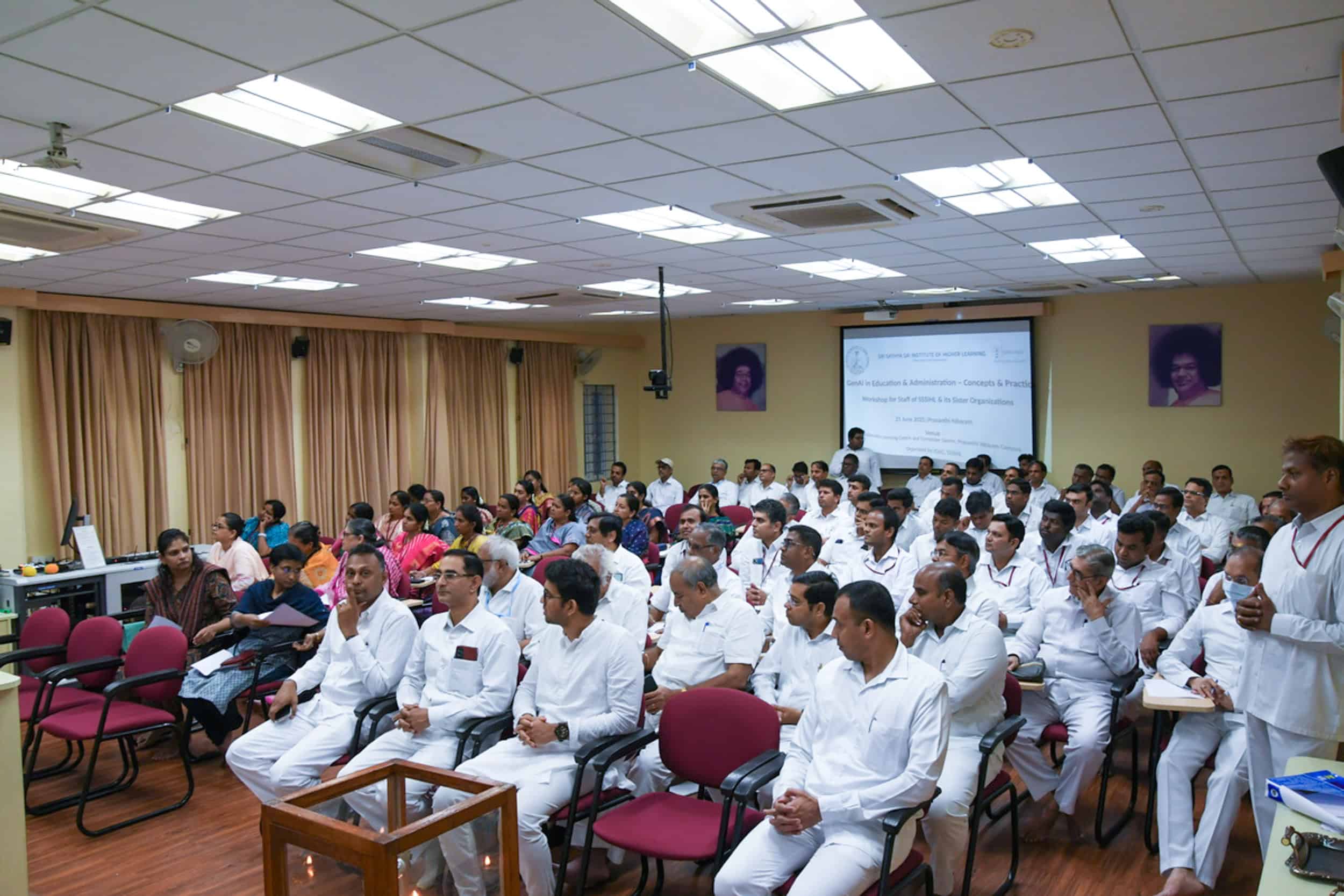
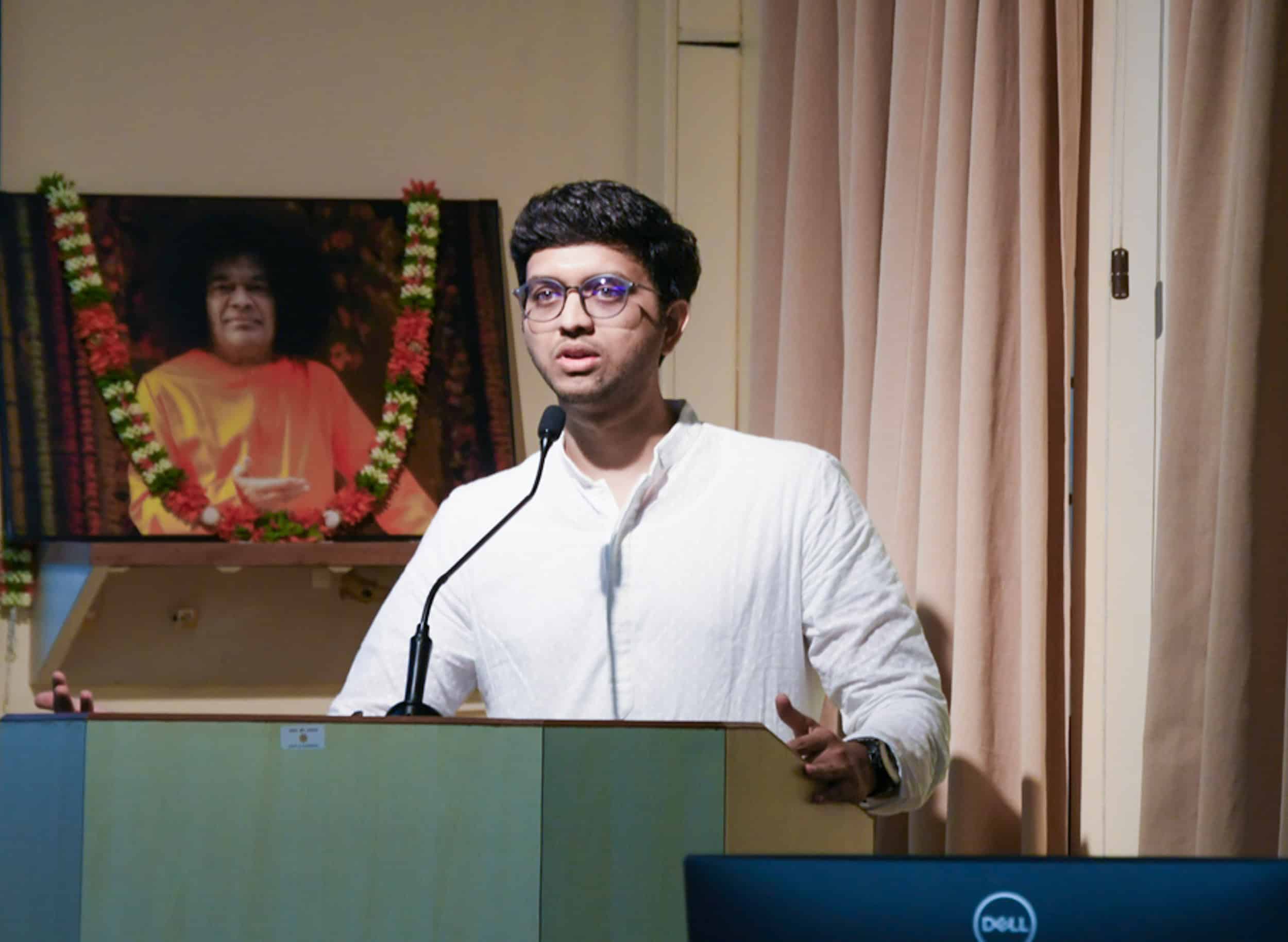
Afternoon Session: Practical Applications and Hands-on Training
The post-lunch session focused on practical engagement with Gen AI tools and was facilitated by Sri Sanket Waykar, Manager – Emerging Technologies, PricewaterhouseCoopers (PwC).
The session began with the honouring of guest speakers by Prof. B Raghavendra Prasad, Vice-Chancellor, SSSIHL, in a gesture of appreciation for their contributions and continued support to the Institute.
Participants reconvened at the Computer Centre, where they explored the practical use of Gen AI tools through a series of interactive exercises designed to replicate real-world administrative scenarios.
Hands-on Activities Included:
- Drafting professional emails using Gen AI suggestions
- Enhancing productivity through AI-powered Excel functionalities
- Designing logos and visuals using generative design platforms
Participants responded with great enthusiasm, actively experimenting with the tools and showcasing outputs that reflected creativity, functionality, and purpose-driven application of technology.
Conclusion
The workshop concluded with a heartfelt Vote of Thanks delivered by Dr. A S Vishwanathan, Deputy Coordinator, IQAC. The feedback received from participants was overwhelmingly positive and insightful.
The workshop successfully demystified Generative AI for the non-teaching staff of SSSIHL and its sister organisations. It not only introduced the fundamental concepts and tools but also provided meaningful practical exposure. Participants left with a clear sense of how Gen AI can assist in ideation, communication, and operational efficiency—anchored in ethical usage and value-based practices.
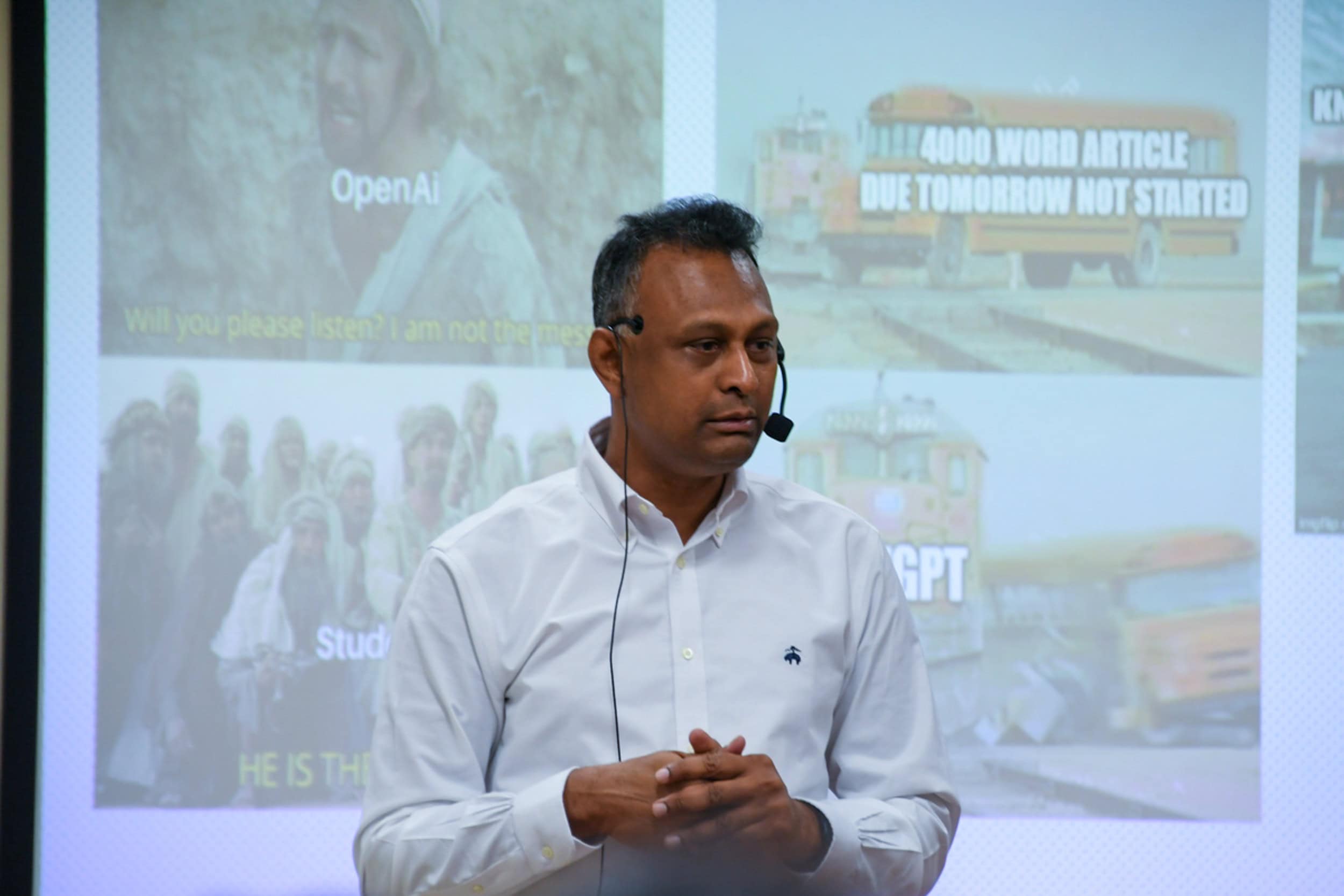
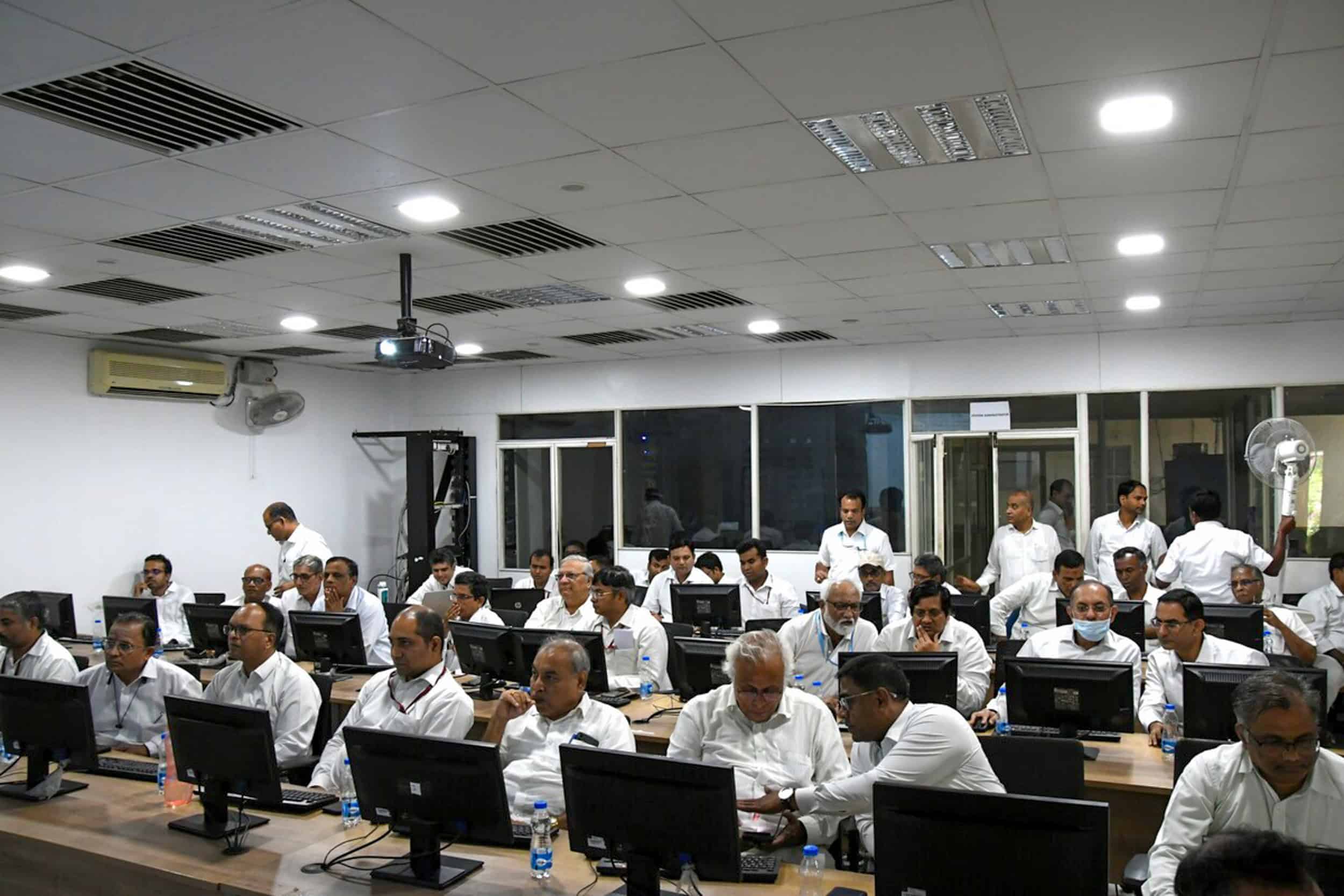
Celebration of International Day of Yoga at Prasanthi Nilayam, 21 June 2025
The International Day of Yoga was celebrated with deep reverence and spirited participation on 21st June 2025 at Prasanthi Nilayam, at the Sri Sathya Sai International Centre for Sports, uniting students and staff from:
- Sri Sathya Sai Institute of Higher Learning (SSSIHL)
- Sri Sathya Sai Higher Secondary School (SSSHSS)
- Sri Sathya Sai Primary School
- Smt. Eswaramma High School
The event commenced with a sacred Vedam procession by students, charging the atmosphere with spiritual vibrations.
This was followed by the ceremonial Jyoti Prajwalana (lighting of the lamp) by:
- Prof. B. Raghavendra Prasad, Vice-Chancellor, SSSIHL
- Dr. Srikanth Khanna, Registrar, SSSIHL
- Invited dignitaries and eminent Yoga experts
Sri Satya Sai Mudigonda then delivered the Welcome Address, highlighting the spiritual significance of Yoga and its integration into the Sai system of integral education.
Yoga Highlights:
A structured Common Yoga Protocol session was conducted by Sri G. R. Praveena, offering participants a revitalizing blend of Surya Namaskara, asanas, pranayama, and relaxation techniques.
This was followed by vibrant and synchronized Yoga performances by the students of :
- Sri Sathya Sai Primary School
- Sri Sathya Sai Higher Secondary School
- Smt. Eswaramma High School
Each of these performances was of exceptional quality, demonstrating physical agility, mental focus, and artistic coordination.
Talks & Reflections:
Sri G. R. Praveena delivered a thought-provoking address in Sanskrit, emphasizing the timeless wisdom of Yoga embedded in Indian tradition.
Prof. B. Raghavendra Prasad, the Chief Guest, gave an inspiring talk on the holistic and transformative potential of Yoga, encouraging its daily practice among students and faculty alike.
Felicitations:
In recognition of their invaluable contributions, Yoga experts and Physical Directors from the schools and university campuses were felicitated by the Vice-Chancellor. The honorees included:
- Sri Vinod Kumar
- Sri Rajendra Prasad
- Dr. Naveen
- Sri Vivek
- Sri Krishna
- Sri Mariyappan
- Sri Karan
- Sri Damodar
Special felicitations were also extended to:
- Sri G. R. Praveena – Yoga expert and composer of the Yoga theme song
- Sri Satya Sai Mudigonda – Coordinator of the International Day of Yoga program
Prize Distribution:
Winners of various Yoga-related competitions were honored in a prize distribution ceremony conducted by Dr. Srikanth Khanna, Registrar, SSSIHL and Sri Sivarama Krishna, Principal, Sri Sathya Sai Higher Secondary School
Conclusion:
The celebration concluded with a heartfelt Vote of Thanks, expressing gratitude to Bhagawan Sri Sathya Sai Baba, the dignitaries, participants, volunteers, and staff for their selfless efforts and enthusiastic involvement.
The morning culminated with the offering of Mangala Arati, invoking divine blessings for the well-being of all.
Empowering Through Service: Skills Enhancement Programme for Visually Challenged Students
As part of its ongoing extension and community outreach initiatives, the staff and students of the Sri Sathya Sai Institute of Higher Learning (SSSIHL), Anantapur Campus conducted a one-month skills enhancement programme for visually challenged students residing at the “Meenakshamma Inclusive Development Centre” a privately-run hostel in Anantapur.
This initiative was catalysed by Ms. Rama Devi, a visually-challenged alumna and a long-time resident of the Sri Sathya Sai Women’s Hostel, who brought to light the pressing need for skill development among this group. The Meenakshamma Inclusive Development Centre, managed by Smt. & Sri Venkata Narayana, a devout couple, provides accommodation and support to approximately 40 underprivileged girls—most of whom are fully visually challenged and currently pursuing intermediate or undergraduate studies.
The objectives were
- to provide basic computer literacy using assistive technology (talkback-supported systems)
- to develop spoken English and communication skills
- to create awareness among SSSIHL volunteers of the challenges faced by visually impaired students and to foster a spirit of selfless service
Planning and Preparation
A preliminary visit by the Director and a faculty team in April 2025 confirmed the feasibility and need for such a programme. Following this, a call for volunteers was made. Seventeen faculty members and research scholars came forward to offer daily training sessions, each lasting 90–120 minutes over four weeks. The programme was coordinated by Ms. K. Hemalatha, Asst. Director, Physical Education, with four rotating teams conducting sessions from 1st May to 30th May 2025.
Implementation
The programme was divided into two core modules:
- Computer Basics (using talkback): turning on a PC, navigating applications, typing in MS Word, creating resumes, and making PowerPoint presentations.
- Conversational English: confidence-building exercises, basic grammar and sentence structures, interactive speaking tasks.
The students were grouped into two batches that alternated between modules every three days to ensure focused attention and learning continuity.
Outcomes
- Students successfully gained the ability to operate a talkback-enabled desktop system, create documents and presentations.
- They showed marked improvement in spoken English; one student confidently delivered a vote of thanks in English on the concluding day.
- The programme significantly impacted both beneficiaries and volunteers.
- The experience deepened the volunteers’ appreciation for their own privileges and strengthened their resolve to serve society.
Future Directions
The visually challenged students and the management at the Centre have requested continued support. The campus aims to design a sustainable follow-up training module as part of its regular outreach activities, with the continued grace and inspiration of our Founder Chancellor Bhagawan Sri Sathya Sai Baba.
Better, Safer Titanium Implants—Made Affordable with a Simple Etching Technique
Identifying the Issue
- Current titanium implants, though biocompatible, require surface treatments to improve early-stage bone integration and also to prevent bacterial adhesion causing conditions like peri-implantitis.
- High cost and complexity of typical implant surface treatments limit its accessibility, especially in lower economic settings, warranting the need for simpler and cost-effective methods
Objective of the Research
- Develop a low-cost surface treatment to improve implant to bone integration and minimize bacterial colonisation.
- Create a technique that’s feasible in clinical settings without complex equipment.
Who should read this?
- Dental and orthopaedic implant manufacturers
- Biomedical engineers
- Dental surgeons and clinicians
- Medical device R&D professionals
Solution
A dual alkali (NaOH and NH₄OH) etching was performed at room temperature on titanium alloy (Ti-6Al-4V). This treatment technique improved surface roughness and chemistry and the etched samples showed better osseointegration and bacterial resistance.
Key Features and Benefits
- Etching performed at room temperature, without the need for any special equipment
- Compatible with existing implant materials (Grade 5 titanium)
- Cost-effective, scalable, and clinically feasible
- Improved bone integration and promotes healing
- Minimises bacterial colonization
Impact
- 7× reduction in bacterial adhesion vs. as received grade 5 titanium
- Good hydroxyapatite formation within 1 week of soaking in SBF that proves ability for early-stage bone formation
- In-vivo studies show improved early osseointegration in 1 and 4 weeks of implantation
- Technique suitable for adoption in a clinical setting
Team
- Sushmita Chettri (first author) (SSSIHL)
- Deepa Seetharaman (Corresponding author) (SSSIHL)
- Wei Zhu (Peking Union Medical College Hospital, and Chinese Academy of Medical Sciences)
- Huasi Zhou (Uppsala University, Sweden)
- Håkan Engqvist (Uppsala University, Sweden)
- Wei Xia (Uppsala University, Sweden)
Title of paper: “Dual alkali etching for osseointegration and reduced bacterial adhesion: a feasible alternative to SLA“
Read Paper Here: https://doi.org/10.1039/d4ma01223b
Sustainable EMI Shields from Graphite-PVDF—A Scalable Solution for the 5G Era
Identifying the Issue
- The projected demand for EMI shielding materials for the purpose of protection of high-end sensitive electronic devices is rising due to the expansion of 5G telecommunication services, digitization, and the electronics industry.
- Many currently existing EMI shielding materials and techniques are energy-intensive to produce, or involve hazardous precursors or solvents, thus limiting environmental safety and scalability.
Objective of the Research
- To fabricate EMI shields having high shielding effectiveness by a sustainable and facile method using graphite and PVDF
- To investigate their shielding and electrical properties with variation in weight% of the constituents and with thickness of the shield to arrive at the optimum parameters for shielding.
Who should read this?
- Professionals working on EMI shielding materials and sustainable fabrication.
- Those interested in the electrical properties of PVDF-Graphite composite, and its compositional and thermal properties
Solution
A simple, scalable, and eco-friendly method of blending and pressing, followed by low temperature annealing with negligible solvent use to fabricate EMI shields using Graphite and PVDF.
Key Features and Benefits
- Graphite-PVDF composites developed using the scalable, and energy-efficient method showed tunability in their electrical and dielectric properties.
- The Graphite-PVDF composites exhibit electromagnetic interference (EMI) shielding effectiveness up to 50 dB in the X-band microwave region, making them promising materials for lightweight, cost-effective microwave shielding applications.
- The composite shields also exhibited suitable mechanical properties required for EMI shielding applications.
- As the technique required very minimal use of organic solvent, it is environment friendly while being scalable.
Impact
- Graphite-polyvinylidene fluoride (PVDF) composites preparation by a novel, energy-efficient and scalable route.
- Electrical conductivity tuned from 10−7 to 1 S/m by increasing graphite wt%.
- At 30 wt% graphite: maximum dielectric loss ~5000, absorbance = 42% & SE A = 86%.
- Dielectric constant and loss are large above the percolation threshold of 25 wt%.
- High SET of 30-50 dB achieved in X-band microwave region for 20–40 wt% graphite.
Team
- Priyanka Verma (first author) (SSSIHL)
- Deepa Seetharaman (Corresponding author) (SSSIHL)
- Bharat Srimitra Mantripragada (JAIST)
- Noriyoshi Matsumi (JAIST)
Title of paper: “Graphite‐PVDF Composite Sheets Fabricated via a Facile and Scalable Technique for Electrical and EMI Shielding Applications”
Read Paper Here: http://doi.org/10.1002/pc.30054

Fig 1: Fabrication of graphite-PVDF composite shields, variation of electrical properties and electromagnetic interference shielding performance with graphite wt%, shielding mechanism and frequency dependence of SET, SER, and SEA (in dB)
Read MoreIntegrative Approaches in Mathematical Modeling and Bioinformatics: A Comprehensive FDP Overview
The Faculty Development Program (FDP) on Advances in Mathematical Modeling Techniques, AI/ML and Bioinformatics was organized online by the Centre for Excellence in Mathematical Biology (CEMB), SSSIHL, in collaboration with ISMMACS, from April 12–19, 2025, as part of the Sri Sathya Sai Centenary Celebrations. It brought together 72 participants—faculty, researchers, and students—from across India.
Over eight days, expert speakers from premier institutions worldwide delivered sessions covering key domains such as optimal control, parameter estimation, epidemiological modeling, delay differential equations (DDEs), stochastic modeling, bioinformatics, and scientific machine learning. The program balanced theory with hands-on training, using tools like Python, MATLAB, and JAMOVI to simulate real-world scenarios in population dynamics, disease spread, cancer research, and more.
Highlights included sessions on machine learning techniques like Extreme Learning Machines, cryptographic applications of graph theory, and hybrid modeling approaches combining AI and mechanistic models. Real-life case studies, such as modeling the effects of insecticides on crops or hereditary cancer diagnostics through bioinformatics, added practical value.
Participant feedback was overwhelmingly positive, praising the program’s interdisciplinary nature, clarity of instruction, technical depth, and smooth organization. Many appreciated the accessibility of complex topics and the provision of session recordings for continued learning. The FDP successfully enriched participants’ knowledge base and provided a robust platform for future research and collaboration in mathematical biology and computational modeling.
Workshop on Attracting Investments for Research and Innovation by Dr. Anand Govindaluri – A Report
The Institution’s Innovation Council (IIC) of Sri Sathya Sai Institute of Higher Learning (SSSIHL) successfully organized a one-day hands-on workshop titled “Attracting Investments for Research and Innovation” on 25 April 2025 at the Multimedia Learning Centre, Prasanthi Nilayam Campus.
The workshop comprised three interactive sessions and saw participation from over 50 attendees, including faculty members, research scholars, and students from all four campuses of SSSIHL.
Session I
Following the traditional Vedam chanting, the event commenced with the lighting of the ceremonial lamp by distinguished dignitaries:
- Dr. Anand Govindaluri, Guest Speaker and Founder & CEO, Govin Capital, Singapore
- Prof. B Raghavendra Prasad, Vice-Chancellor, SSSIHL
- Dr. Srikanth Khanna, Registrar, SSSIHL
- Prof. Pallav Kumar Baruah, Dean of Sciences and President of IIC, SSSIHL
- Dr. Raghunatha Sharma, Director, Prasanthi Nilayam Campus
Dr. B. E. Pradeep, IPR Coordinator, IIC-SSSIHL, delivered the welcome address, setting the tone for the day. The inaugural address was presented by Prof. B Raghavendra Prasad, Vice-Chancellor, who emphasized the significance of innovation, entrepreneurship, and the role of investment in scaling scientific research.
Ms. Premembika from the Anantapur Campus introduced the guest speaker. Dr. Anand Govindaluri then delivered a compelling keynote address on the topic, “Attracting Venture Capital Funding to Scientific Research and Innovations”. Drawing from over two decades of experience in venture investment and entrepreneurship, Dr. Anand shared valuable insights and inspiring real-world examples. The session concluded with an engaging Q&A, during which he provided in-depth responses to participants’ queries citing real-world cases and insights.
Watch the recording of Session I: https://www.youtube.com/live/p-Um1VMFpvc?si=MEZ8-FmAXMyC69MN
Session II
The second session was a closed-door hands-on workshop, where selected participants showcased their research and entrepreneurial ideas through a concise “One-Slide Presentation”. The participants included:
- Sai Darshini, Research Scholar, ATP campus
- Amrita Shaw, Research Scholar, ATP campus
- Mounika Pandey, Research Scholar, ATP campus
- Dr. Vishweshwar, Assistant professor, DCHEM, Prasanthi Nilayam Campus
- Dr. Murali Ravi, Assistant Professor, DPHY, Prasanthi Nilayam Campus
Each presentation received detailed feedback from Dr. Anand Govindaluri, who expressed a strong interest in two of the projects, noting their potential for commercialization and investment. This endorsement provided a major boost to the confidence and motivation of the participants.
Session III
The concluding session included another enlightening talk by Dr. Anand titled, “Social and Scientific Innovations and Investors’ Dilemma”, where he elaborated on the challenges and opportunities that innovators and investors face in the current global scenario.
An open house discussion allowed for a free exchange of thoughts, clarifications, and further learning. The event concluded with remarks by Dr. Murali Ravi, who appreciated the inspiring guidance provided by the speaker and the active participation of the attendees, followed by a vote of thanks and Mangala Aarathi.
Watch the recording of Session III: https://www.youtube.com/live/-KPq8k3at9g?si=11XjzVObQRfJaJFC
The workshop proved to be a highly impactful initiative, leaving participants better informed about the venture capital ecosystem and inspired to transform their research innovations into real-world solutions.
Faculty Development Programme on Advancing Research Excellence
The Department of Management and Commerce, SSSIHL, is organizing a five-day online Faculty Development Programme titled “Advancing Research Excellence” from 19th to 23rd May 2025, daily from 5:00 PM to 7:00 PM.
This FDP is designed to enhance the research capabilities of faculty, research scholars, and industry professionals. The programme will cover key topics including:
- – Systematic Literature Review (SLR)
- – Bibliometric Analysis using VOS Viewer
- – Structure of Research Papers and Academic Writing
- – Navigating the Publication Landscape
- – Ethical Publishing and Avoiding Predatory Journals
Key Outcomes: Participants will gain insights into structuring academic manuscripts, conducting bibliometric analysis, identifying high-quality journals, and improving research visibility through ethical practices.
Resource Person: Dr. Raja Sankaran, (PhD, IIM-Ranchi), is an Associate Professor, SSSIHL, with over 35 years of academic and industry experience, and publications in reputed ABDC journals.
Click here to register: https://forms.gle/Kg442pPrw3QFM2ir8
Last Date to Register: 15 May 2025
Contact:
Dr. Raja Sankaran – [email protected] | 80736 97345
Prof. N Sivakumar – [email protected] | 94489 28884
One-Day Hands-on Workshop on “Attracting Investments for Research and Innovation”
The Institution’s Innovation Council (IIC), SSSIHL, is organizing a one-day hands-on workshop on “Attracting Investments for Research and Innovation” on Friday, 25th April 2025, at the Multimedia Learning Centre, Prasanthi Nilayam.
The workshop will be led by Dr. Anand Govindaluri, Founder & CEO of Govin Capital, Singapore, and aims to provide valuable insights into securing venture capital funding and engaging with investors for research-driven innovations.
Schedule Highlights:
- Session I (9:00 AM – 10:00 AM): Inaugural Session
Keynote Address: Attracting Venture Capital Funding to Scientific Research and Innovations - Session II (10:00 AM – 01:00 PM): Exclusive* Hands-on Session
“One-slide presentations” by faculty researchers - Session III (03:00 PM – 04:00 PM): Concluding Session
Talk on Social and Scientific Innovations and Investors’ Dilemma, followed by an Open House
The workshop is open to all faculty members and research scholars of SSSIHL. Students are also welcome to attend.
Join us Live:
Morning Session (9-10 a.m.): https://youtube.com/live/p-Um1VMFpvc?feature=share
Evening Session (3-4 p.m.): https://youtube.com/live/-KPq8k3at9g?feature=share
*Session I & III will be streamed Live
Read MoreShining a Light on Greenwashing: MBA Research Wins Best Paper Award at IHUMAST Conference 2025
We are proud to share that Sai Tarun, MBA student, and Dr. Saivinod M.S., Assistant Professor, Department of Management and Commerce, Sri Sathya Sai Institute of Higher Learning (SSSIHL), received the ‘Best Paper Award’ at the IHUMAST Conference (International Conference on Innovative Horizons Uniting Management, Accounting, Sustainability and Technology). The conference was hosted by the Department of Management, St. Joseph’s University, Bengaluru, on 21–22 March 2025.
Their research paper, titled “A Systematic Literature Review of Greenwashing and Ethical Considerations in India,” was one of only two papers shortlisted for this recognition from several entries submitted by researchers across the country.
The paper explores the escalating issue of greenwashing in India, where companies make exaggerated or misleading claims about their environmental responsibility. It delves into the ethical and governance challenges that arise from such practices and the resulting difficulties faced by consumers and stakeholders in identifying genuinely sustainable businesses. Through a review of academic literature, industry case studies, and existing regulatory frameworks, the study calls for greater transparency, stronger governance, and more effective policy measures to address this issue.
Key Insights
- Identifies major governance and ethical challenges associated with greenwashing.
- Highlights the importance of consumer awareness and effective policy in addressing deceptive practices.
- Emphasizes the need for regulatory transparency and accountability in corporate sustainability efforts.
Impact
- Provides a thematic framework to guide future research and policymaking.
- Raises awareness about the ethical risks of misleading environmental claims.
- Encourages improved corporate governance and supports the development of stricter regulatory standards in India.
This recognition is a testament to the academic rigor and relevance of the research conducted at SSSIHL and reflects our continued commitment to contributing to pressing global issues through thoughtful, ethical inquiry.


